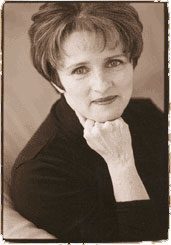I fell in love quite early in my life. I was only a teenager at the time and didn't quite grasp the depth of my feelings.
Yup...I had some processing to do 😉
Why happy memories make you sad
Years later when I would think back about that relationship, despite the warm, loving memories, it made me sad to think of us together.
Not to put too much of a damper on sentimentality, but there's a logical reason for why I felt sad despite the goodness that was there. It's actually found in the way the brain is wired.
You see at the time I recalled that relationship, I was already depressed.
Problem was, I didn't know I was depressed. Cause depression in our brain doesn't always look like sadness on the outside.
A depressed nervous system affects your memories
In brief, it isn't that thinking good memories makes you sad, it's that being depressed and recalling a good memory, colors your perspective. It's like you are wearing dark glasses and the only thing you can see are dark colors.
Years later - when I wasn't depressed - I once again looked back with fondness at those times.

Brain Rule: Whatever emotional state you're in at the time, will affect and determine, the memories you access.
If you're tired from a long day at work and you start thinking about the picnic tomorrow, it's the ton of organizing you have to do to prepare for it that grabs your attention - and not - the image of you laughing freely with friends.
This might be despite that fact that you've been looking forward to it for over a week.
Feel good memories trigger happy moments
Now memories can also affect you the other way around. That is, you might recall a positive nostalgic memory (e.g. having fun with friends) when you're feeling 'not so good' and it will trigger a 'feel good' moment.
What's the difference?
In this case, your nervous system can handle the 'hype' (ie. the arousal pattern). It can tolerate the upswing in emotion without going over your nervous system capacity.
However, just know it's a lot tougher for that positive memory to overcome a heightened negative state. The main reason is because there's actually more wiring in the brain going in the opposite direction.
That is, the state you are in at the time, will have more of an impact on the memories you recall.
It's helpful to understand how your emotions are processed in the brain.
Implicit memories dictate how we feel
Emotions are based on memories called implicit memories. And it's actually the implicit memories that affect how you feel about yourself.
Implicit memory is comprised of unconscious emotional patterns of relating to ourselves and others. It's the kind of memory you access without thinking.
It's what makes you feel characteristically you.
So the better you understand how to change emotional implicit memories, the easier it is to change how you feel about yourself.
Emotional implicit memories in therapy
You could say much of our work in counseling is in making the implicit explicit. In other words, counseling brings consciousness to those aspects of our character and/or our behaviour we have little awareness of.
These are the types of behavioural patterns laid down implicitly in the brain:
How do you feel about yourself?
Are you good at self-care? Do you accept all aspects of your personality? Or do you tend to deny yourself, or verbally beat yourself up?
How are you with others?
Do you naturally gravitate towards others and enjoy their company? Or do you prefer being on your own?
Implicit memory guides our behavior automatically, without thought or effort. You can think of implicit memory as a set of instructions or procedures encoded in the brain. However, a procedure can't easily be described in words or contained in images. These procedures are nonconscious and nonverbal.
Implicit memory starts early
For the first 18 months of our lives the implicit memory system is online establishing the basis of our character. Explicit memory, the kind of memory we can consciously recall ("I remember the time when I...."), doesn't come fully online until much later.
This kind of memory is necessarily implicit because the newborn has no conceptual or verbal ability and must depend on its inborn capacity to learn what it needs quickly and nonconsciously, in an environment where survival itself depends on emotional connection.
Implicit memories are transformed in good therapy
Implicit emotional memories are procedural. This means implicit memory is difficult to change. For instance, you just can't tell yourself, "Don't be stubborn" and hope this will change you permanently. This is like the left brain telling the right brain what to do. As my colleague Dr. Carole likes to say, "It ain't gonna happen."
Changes to the implicit memory system require a different kind of stimulus. Thankfully, due to the brain's capacity for plasticity these types of changes are possible.
In much the same way that the infant learns via her connection with her mother, we learn in our interactions with our therapist. It is in the safety of the relationship with our therapist that right brain, implicit memory is activated.
My Personal Musings
These ideas are so exciting they have literally inspired much of my writing on this site!
References
Grigsby, Jim & Stevens, David (2000). Neurodynamics of Personality. New York: Guilford Press.
Ledoux, Joseph (1996). The Emotional Brain: The Mysterious Underpinnings of Emotional Life. New York: Touchstone Books.
Schore, Allan (2003). Affect Regulation and Repair of the Self. "The Right Brain, the Right Mind, and Psychoanalysis." New York: W.W. Norton & Company, pp. 205 - 249.
Taking the Tour?
Mastering Emotional Triggers:
The Key Role of Your Nervous System
Click on the Activation link below:
Introduction
What's with the Reptile?
The Right Brain
Activation
Implicit Memory
Procedural Memory
Joy


